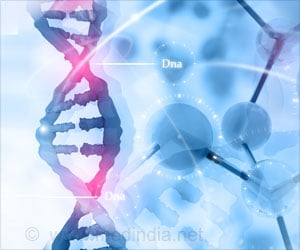
“DNA methylation is an epigenetic mechanism that switches off gene expression. Gene expression regulates cell and tissue function. In this case, the chromosome inherited from the father is always unmethylated and expresses the nc886 gene in all humans,” says Saara Marttila, postdoctoral researcher and first author of the paper.
‘The difference in nc886 gene expression is associated with glucose and lipid metabolism disease risk.’
The study shows that this early developmentally determined status of DNA methylation in the nc886 gene is stable from childhood to adulthood, throughout a 40-year follow-up.
People with both chromosomes unmethylated have twice the amount of nc886 RNA in their blood, and the study also found direct evidence of this at the level of RNA expression over 30 years of follow-up.
The number of individuals whose maternal chromosome is also unmethylated and expresses RNA appears to be lower in those born into families of highest socio-economic status and those whose mothers were between 21 and 30 years old.
READ RELATED: Stomach bloating warning: The easily overlooked dietary decision that could be to blame
They also found that people who also express the nc886 gene from their maternal chromosome are about 25 percent of the population, who have higher insulin and lower glucose levels in their adolescence, and men in this group also have higher cholesterol levels.
The study highlights the role of difference in the single gene expression of nc886 is present in all tissues throughout life and so the research group will further investigate the health effects of nc886 gene expression differences in the future.
Source: Medindia
Source:







